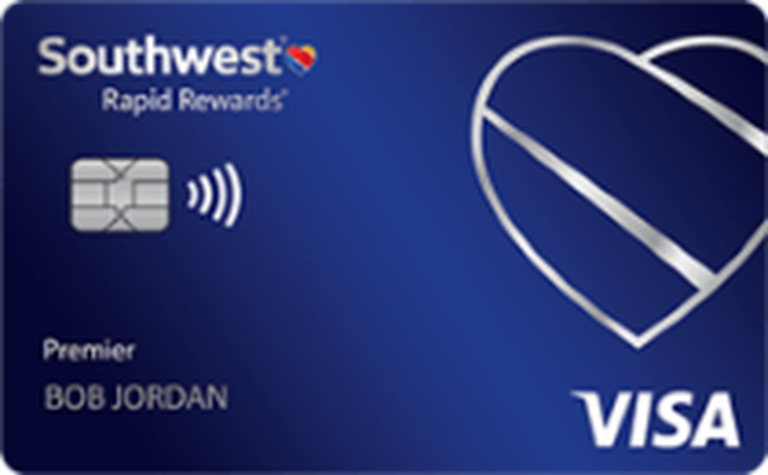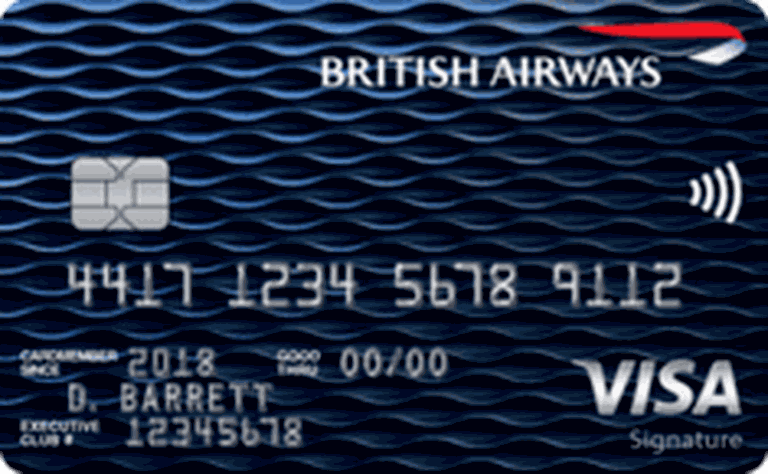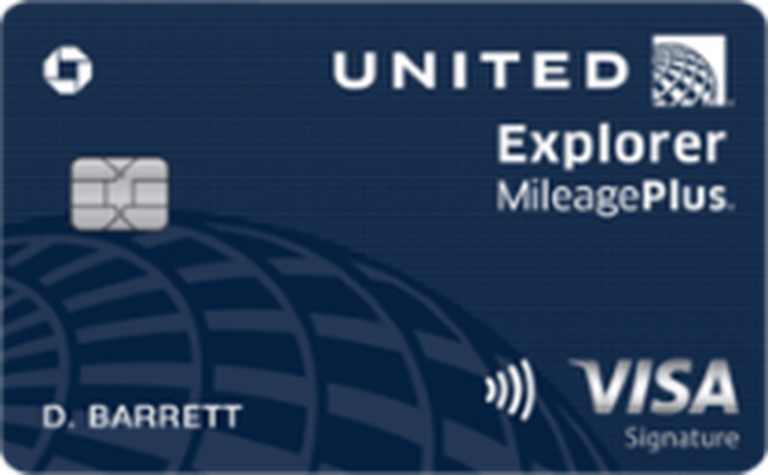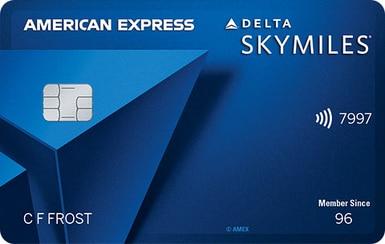If you’re a frequent traveler–for pleasure or business–a great travel rewards credit card is a must-have. If you prefer to fly with a certain airline, a card that offers miles for that airline is essential.
Airline miles credit cards can boost the miles you receive through your preferred airline’s mileage program. You can rack up miles by the millions. (Don’t believe me? Just check out the movie Up in the Air.)
Note that the cards listed below are airline specific, rather than generic travel rewards cards that let you use your points on just about any airline. We've focused on great cards from some of the nation's top airlines.
We’ll look at just how much the average family could earn with these cards. “Average” is, of course, a bit of a broad term for anything personal finance related. So we’re using the Bureau of Labor Statistics data on consumer expenditures as a proxy.
We added up the food, gasoline, entertainment, and apparel categories to come up with an average of about $14,000 in spending per year. We'll say the family in question spends another $2,000 with their airline of choice. These are the expenses you're most likely to put through a credit card, so that's how we'll calculate potential rewards.
Keep in mind that the value of points varies from month to month and depending on what type of travel you're booking. We'll use this chart from The Points Guy to estimate the most recent value for each credit card's points.
1. Southwest Rapid Rewards® Premier Credit Card

There’s a reason the Southwest Rapid Rewards® Premier Credit Card is so popular. It offers 3X points on Southwest® purchases, 2X points on local transit and commuting, including rideshare, and 2X points on internet, cable, and phone services, and select streaming plus 6,000 bonus points per year on your card member anniversary.
- Sign on Bonus: Earn 50,000 bonus points after spending $1,000 on purchases in the first 3 months from account opening.
- Fees: The Premier card comes with a $99 annual fee. If you spend enough on this card, though, you can easily outweigh that fee. The card doesn’t have foreign transaction fees, though, which could spell big savings for frequent international fliers (though Southwest only flies to Mexico and the Caribbean).
- Other Benefits: 2 EarlyBird Check-In each year, there are no blackout dates, and all points earned count towards Companion Pass.
- Membership Levels: Your credit card points can help boost your membership level in the overall Rapid Rewards program. Companion Pass--the highest status--earns you the ability to bring a companion for free whenever you purchase a ticket for yourself. You can change who receives the companion benefits up to three times per year.
Potential Benefits: If you ran every bit of your above-noted expenses through this card, you’d wind up with 36,000+ Southwest Rapid Rewards points by your first card member anniversary. Even when you minus that $99 annual fee, you’ve likely earned enough for at least a couple of free domestic tickets if not a handful.
Learn More about this and similar cards HERE.
2. Delta SkyMiles® Gold American Express Card
- Welcome Offer: Earn 40,000 bonus miles after you spend $2,000 in purchases on your new Card in your first 6 months. Terms apply.
- Fees: $0 intro annual fee in first year, then $99. The card has no foreign transaction fees.
Other Perks: Cardholders save 20% (in the form of a statement credit) when they make in-flight food, beverage, and entertainment purchases with this card. Cardholders also get the first checked bag free for the cardholder and traveling companions, as well as priority boarding. Plus, the card comes with reduced fee Delta Sky Club® Access for the cardmember and two guests. Terms Apply.
Rewards: Earn 2X Miles on Delta purchases, at U.S. Supermarkets and at restaurants worldwide, including takeout and delivery in the U.S. Earn 1X Mile on all other eligible purchases. The bonus miles are worth about 1.1 cents each. That’s still not a bad take if Delta is your favorite airline.
You can get more details on this and similar cards here.
3. British Airways Visa Signature® Card

Without a doubt the British Airways Visa Signature® Card is the card to carry for those that fly British Airways. The bonus rewards for new card members are astounding, as you can see below. The rewards for everyday purchases are also excellent.
- Rewards: You’ll earn 3 Avios per $1 spent on British Airways, Aer Lingus, and Iberia, 2 Avios per $1 spent on hotel accommodations when purchased directly with the hotel, and one Avios for every $1 spent on all other purchases.
- Bonus: Earn up to 100,000 Avios. Earn 75,000 Avios after you spend $5,000 on purchases within the first three months of account opening and earn an additional 25,000 Avios after you spend $20,000 in the first 12 months of account opening.
- Annual Fee: $95
Other Perks: This card has no foreign transaction fees and uses chip technology for added security.
Learn More about this and similar cards here.
4. Chase United℠ Explorer Card

If United is your airline of choice, you can get some great bonus perks from the Chase United℠ Explorer Card right now. It lets you earn miles for both United® purchases and everyday spending, and gives you the first checked bag for free for you and one companion traveling on the same reservation.
- Rewards: Earn 50,000 bonus miles after you spend $3,000 on purchases in the first 3 months your account is open.
- Annual Fee: $0 Intro fee for the first year. After that, $95
- Other Benefits: With the Chase United℠ Explorer Card, you’ll get priority boarding and two United Club℠ one-time passes on your card anniversary.
Learn More about this card HERE.
5. Delta SkyMiles® Blue American Express Card

With this card, you’ll earn 2 miles per $1 spent on purchases made directly with Delta or at U.S. restaurants. One mile per dollar spent on everything else.
- Bonus: New cardholders will earn a 10,000 mile bonus after spending $1,000 in the first six months. Yes, that’s watered down from the Gold version above, but the big benefit of the Blue vs. the Gold is in the fee structure. Terms Apply.
- Fees: No annual fee, no foreign transaction fees. You give up a little bit in up front bonus and perks, but you are not saddled with an annual fee of up to $100 like other cards on this list.
Other Perks: Cardholders save 20% (in the form of a statement credit) when they make in-flight food, beverage, and entertainment purchases with this card. Also included is car rental and damage insurance when you purchase a rental and the full line of AMEX cardholders perks (like extended warranties and purchase protection).
Potential Benefits: This card offers double points on Delta flights and restaurants but the up-front bonus is a little bit small. Say you earn 17,500 in your first year; with points being worth about 1.1 cents each, you’re looking at a savings of $192.50. Keep in mind, there is no annual fee eating into the savings.
How to Choose an Airline Credit Card
You will get among the best rewards deals by booking travel using points or miles. And using a dedicated airline credit card, you may usually save money on costs while getting some additional benefits provided by that airline only.
You'll probably notice that several airlines have at least one option for a branded credit card - but some have a number of options, which could grow to be incredibly perplexing.
1. Decide on a card attached to the airline you utilize in most cases
To help you take full advantage of the value of your airline-specific credit card, you'll want to use that airline as much as possible. It gets less complicated to pick an airline if your closest airport provides major hubs for the big airlines (like United or Delta).
However, if you tend to fly on multiple airlines, or utilize the "cheapest available" solution, you'll want to narrow it down to an individual airline that will give you the most advantage possible.
But in the end, if you would like to flip flop between many different airlines and have no allegiance to one, you'll be better off selecting a general travel rewards card allowing you to get more freedom.
You won't necessarily get "free flights" from the airline or airline-specific perks, but those cards allow you to redeem points or miles for travel credits and also have some travel benefits of their own.
2. Compare the advantages of each card
Typically, an airline-specific card will have an annual fee, that can be offset through the cash value you receive through rewards and perks. For example, one of the more common added perks is the opportunity to check your bag at no cost - which can cost a lot these days.
The Chase United Mileage Plus Explorer card, for instance, will give you the first checked bag at no cost for each person whose ticket you purchase on the card. And the Delta SkyMiles® Gold American Express Card also will give you the first checked bag totally free for the cardholder and traveling companions.
Here are some of the other incentives you can find with an airline-specific credit card:
- Upgrades to your seat (which, yeah, airlines charge for now)
- Special discounts when buying items during the flight (like cocktails or meals)
- Access to free Wi-Fi during your flight
- Cost-free entrance into the airline's airport lounge
- Companion travel passes
- An application fee credit for TSA PreCheck or Global Entry
In nearly every case, the higher the annual fee, the better perks the card will have. Consequently, you’ll have to evaluate if paying a much higher annual fee is worth it for your requirements. If you don’t need all the advantages of a fee-based airline card, then look into a no-fee travel card for some other options.
But recognize that even if you only travel a couple of times a year, the benefits your credit card can crank out for you may quickly counteract the annual fee (so don't ignore it so fast). And, the more you spend, the more you save.
3. Consider the rewards for purchases
Virtually all airline credit cards will have an easy-to-follow purchase rewards process. As you see in our list of favorites, it's pretty common to get 2 miles/points per dollar on all purchases with that particular airline, then 1 mile/point per dollar on everything else. Some offer the former rate on all purchases, which is amazing.
And lately, we’ve seen a great deal of airline cards offering bonus points on purchases that fall outside of the specific airline. Some of the bonus categories we’ve seen are:
- Hotels
- Gas stations
- Restaurants
- Grocery stores
Some cards also give you added miles once you achieve certain spending milestones. With the British Airways Visa Signature Card, for example, new cardmembers can earn 100,000 bonus Avios after spending $5,000 in the first three months. Each and every calendar year you make $30,000 in purchases on your British Airways Visa card, you’ll also earn a Travel Together Ticket good for two years.
4. Look into the sign-up bonus
You're going to earn the most points ever on a rewards card with the sign-up bonus - so it's smart to time the opening of the card when you're able to meet the minimum spend needed to achieve the bonus offer.
Typically, you’ll need to spend between $1,000 and $5,000 in the first three months after opening the card to achieve the bonus - which is usually anywhere from 25,000 to 60,000 points (I don’t recommend opening a card unless you get at least 30,000 points, by the way).
You may also find value in waiting for a limited-time offer - which most airline credit cards do throughout the year (and it's totally random).
I've noticed several airlines offer up additional bonuses a couple of times a year. What's cool is the minimum spend required typically remains the same, however, you'll get extra points. And I've found it's usually enough to get a free flight (in fact, I just did this with my travel card).
5. Determine the annual fee you're comfortable with
While the annual fee may be the very first thing you look at when comparing your options for the very best rewards credit cards, it needs to be the final trait you assess.
For this reason, you should first look into the card advantages and purchase rewards and calculate the value of your prospective rewards each year. Then compare your rewards value to the annual fee.
And obviously, if the rewards don't outweigh the annual fee, it's probably not worthwhile. But if the rewards far outweigh the fee (which is most likely), make sure you strongly think about applying.
Should You Consider a No-Annual-Fee Airline Card?
Here’s when you should consider getting a no-annual-fee airline card:
- You don’t travel much. If you rarely travel, it makes little sense to pay an annual fee for an airline credit card. You’ll get the most benefit by traveling with that airline, so your fee will rarely be offset.
- You don’t spend a lot on credit cards. If you’re not using a credit card for all daily purchases (particularly during the bonus period) then it’s not worth paying a fee for a card and you’re better off with a no-annual-fee card.
- You spend on credit cards, but not necessarily on air travel. Again, you get the most benefit when you make purchases with that specific airline, so if you spend outside of that category you might be better off with a no-annual-fee card.
- You’re is new to travel hacking. If you’re new to travel hacking and don’t know how to make the most of your travel cards, it might be best to use a no-annual-fee card for a few months or a year until you get the hang of how to make the most of the points/miles systems available.
How to Make the Most of Your Airline Credit Card
To make the most of your airline credit card, you’ll need to do the following:
- Use it exclusively. If you are going to pay an annual fee for an airline card, get the most out of it by using it exclusively, at least through the bonus period.
- Make sure you meet the bonus requirements. Don’t ever sign up for a card that doesn’t offer a good bonus deal, and make sure you ALWAYS meet the minimum spend to get that bonus otherwise the value of the card goes down significantly.
- Make use of every additional perk you can find. As I said, most of these airline cards offer benefits beyond just miles with their airline. A great example is bonus points for restaurants. United also has an app where you can buy gift cards for major retailers and earn extra miles by doing so. Find out what those extra perks are and use them to the fullest.
FAQ
Do you need an airline credit card?
No, you don’t need an airline credit card. There are plenty of credit cards that can get you the same, if not better, level of travel rewards that aren’t tied to a specific airline. That being said, if you travel frequently with one particular airline, you might get the most value out of an airline credit card.
What is the difference between airline and travel credit cards?
The main difference between an airline credit card and a travel credit card is where and how you can use your rewards. Airline credit cards allow you to earn miles to spend on that specific airline, whereas travel cards generally use a points system where you can redeem those points for trips on any airline. In short, a travel credit card tends to give you more flexibility.
How do you redeem airline miles on a credit card?
Each airline will be different, but in most cases, you have to create an account with that specific airline’s miles program and link your credit card to that account. That way, your miles will be deposited into your account automatically. From there, you can book travel on the specific airline’s website and choose to use miles for your ticket instead of buying it outright.
Which airline credit card is best for miles?
Choosing the right airline credit card for miles is tough because it depends on where you live and which airlines frequent your local airport. You also need to consider the destinations that a particular airline travels to. That said, the Delta SkyMiles Reserve American Express Card is a great overall card to earn Delta SkyMiles (one of the best airline programs available).
Final Thoughts
If you’re planning on flying this year and especially if you’re planning on flying multiple times this year, it likely makes sense to seriously consider adding one of these cards to your wallet. But be sure to do the math to confirm you can rack up rewards that will make up for any annual fee you may have to pay. Safe travels!









